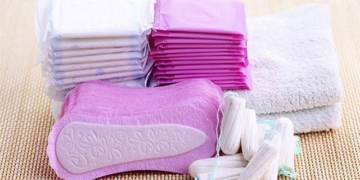By converting air into freshwater, a research team successfully grew spinach in the Saudi Arabian desert in June when daytime temperatures reached 55 degrees Celsius.
A group of scientists in Saudi Arabia has invented a system capable of producing electricity and water to support crop growth in the desert, according to Sputnik news agency.

Desert area in Saudi Arabia – (Photo: ISTOCK).
According to an article published in the scientific journal Cell Reports Physical Science, the scientists’ device utilizes solar panels (photovoltaic cells) and a unique hydrogel material that they have developed.
Hydrogel (water-absorbing polymer) is a new type of chemical polymer material, also known as a water-absorbing agent or water-retaining substance.
The invention works as follows: Hydrogel absorbs moisture from the atmosphere, even in arid regions. Solar energy heats the hydrogel. With the surrounding air, when the absorbing layer of hydrogel is heated, it generates freshwater that can be used for irrigation.
The research team reported that they grew spinach in the Saudi Arabian desert in June when daytime temperatures soared to 55 degrees Celsius. Out of 60 spinach seeds planted, 57 developed to a height of 18 cm.
The researchers named their brainchild WEC2P, which stands for “Water-Electricity-Crop Co-Production System.”
According to the World Resources Institute, the “Water-Electricity-Crop Co-Production System” not only addresses the issue of water scarcity—affecting 400 million people in the semi-arid regions of the Sahara in Africa—but also improves water security and environmental conditions.
“A portion of the world’s population still lacks access to clean water because they live in rural areas with arid or semi-arid climates. Our design helps to utilize clean energy without waste and is suitable for small-scale, decentralized farms in remote locations like deserts and islands,” said Peng Wang, a professor at King Abdullah University of Science and Technology in Saudi Arabia and the lead author of the study.
The scientists are working on bringing their invention to market by enhancing the hydrogel to absorb more water from the surrounding air.



















































